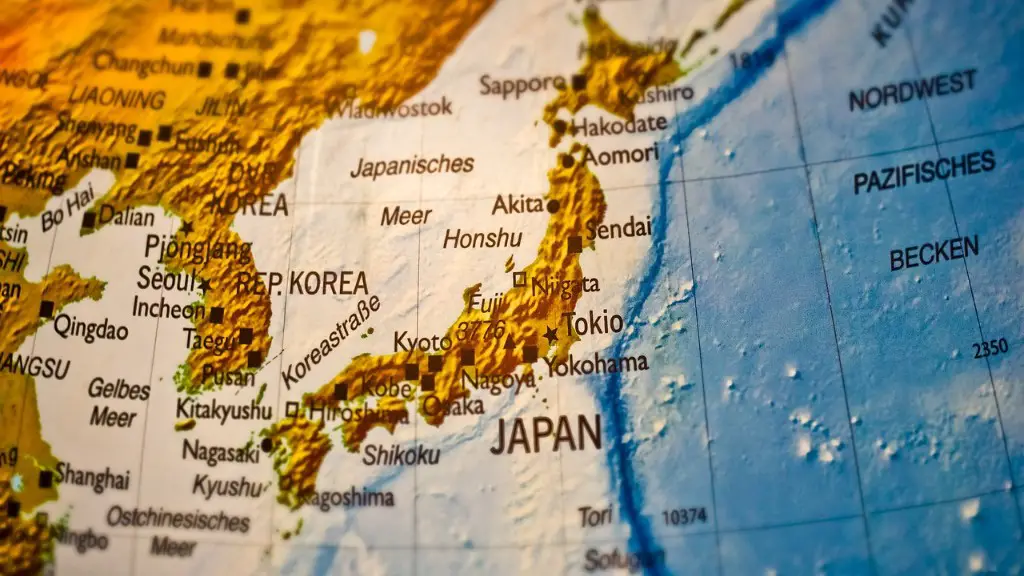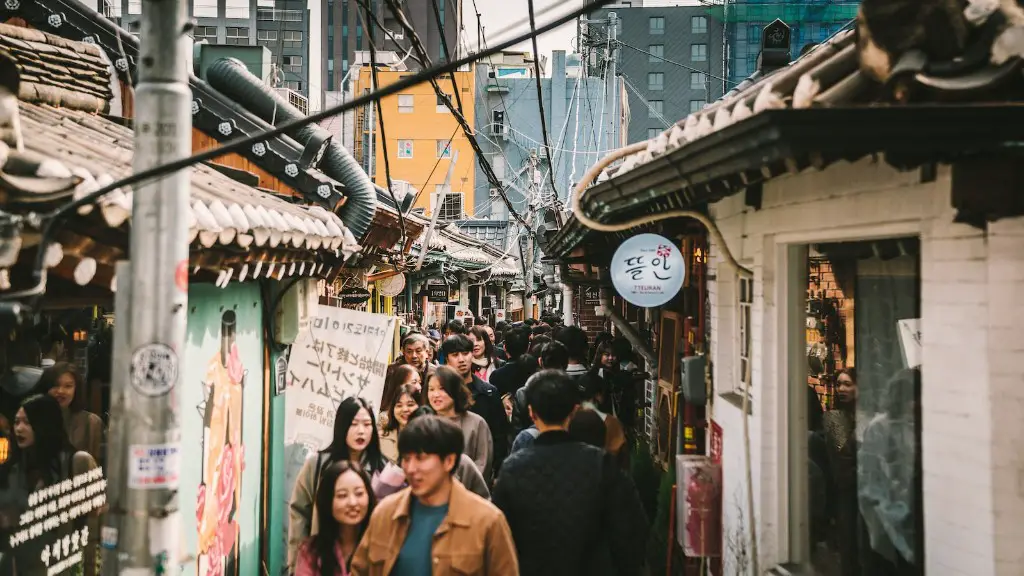Background
North Korea is a socialist, single-party state, where worship of the ruling Kim dynasty is central to its state-imposed ideology. The Kim dynasty existed prior to the formation of the Republic of Korea. The state’s official religion is ‘Kimilsungism-Kimjongilism’, a form of deified ‘absolute leadership’, and the ruling family is believed by the North Korean people to be infallible. The Kim regime has conducted acts of veneration since its founding in 1948, to instill obedience, patriotism, respect and glorification of the ruling family. In North Korea, praises and festivals are held to honor Kim Il-sung and Kim Jong-il. Those who oppose the ideology or worship of the Kim dynasty risk imprisonment or death.
Domestic Worship
The North Korean system of veneration manifests itself in a variety of forms. North Koreans are taught to praise the ruling family from a young age. The education system emphasizes the achievements and infallible wisdom of the Kim family. North Koreans must learn of their “Juche” idea, which is the official state ideology. Every family is required to maintain portraits of Kim Il-sung and Kim Jong-il in their home and must bow in his presence. Moreover, citizens must donate money towards the Kim Il-sung fund as an expression of filial piety.
The veneration of the Kim dynasty is also spread through the country’s media. In television, radio, cinema and literature, Kim Il-sung and Kim Jong-il are portrayed as benevolent leaders to whose ideas, actions and words the North Korean people should be grateful. Songs and poems praising the ruling family are mandatory in public performances. The citizens are expected to participate in the festivals honoring the Kims and their deeds.
Foreign Worship
Outside of North Korea, the ruling family receives widespread admiration from the Korean diaspora and Korean solidarity groups. In some countries, such as China and Japan, statues of the Kims are on public display and praised by visitors, showing popular acceptance of the North Korean ruling family. North Korean students attending foreign universities have been known to display ideological materials praising the Kims in their dorm rooms.
Since Kim Il-sung and Kim Jong-il have died, the North Korean people express the same level of reverence and loyalty to the current leader, Kim Jong-un. Generally, foreign propaganda images portray him to be a young, capable leader who works for the welfare of his people, something which is greatly appreciated by the citizens.
Political Significance
North Korea’s veneration of the ruling Kim dynasty is highly significant to the political future of the region. Popular reverence of past leaders has led to a strong justification for their right to power which, combined with the state’s enforced one-party system, has enabled the incumbent head of state to retain absolute power over the country, often carried out through direct political controls.
The loyalty of the North Korean people to their leader is crucial in maintaining the nation’s strong and secure government. This has been demonstrated in numerous ways, including the personal loyalty of the North Korean military and security forces to the leader, as well as the North Korean people’s trust in the state’s tightly controlled media outlets. In other words, the worship of the Kim dynasty is essential for the North Korean government to continue to exercise power over the country in its current form.
Criticism
The worship of the Kim dynasty is regularly criticized by the international community, given its fundamental role in legitimizing the authoritarian government in North Korea. Moreover, the treatment of citizens who do not adhere to the practice, such as political prisoners and defectors, is considered a serious human rights violation.
In addition, the veneration of the ruling family is often viewed as a form of idolatry, as the Kim dynasty claims a divine mandate to lead the nation. The official ideology of Kimilsungism-Kimjongilism places the Kim family at the centre of the North Korean state, presenting them as infallible gods who must be worshiped to maintain political stability and order.
Religious Perspective
The North Korean state’s practices of worship and idolization of the Kim dynasty have been condemned by religious groups around the world. The reverence of a human being and the discarding of God in favor of a Kim-styled absolute leader are in stark contradiction to the biblical concept of faith and worship. Fundamentalist Christians consider the deification of the Kims to be a form of blasphemy and idolatry. These religious groups criticize the state and its leaders for misusing the beliefs of the North Korean people and infringing upon their right to practice religion freely.
Political Repercussions
The international community has expressed deep concern over the idolatrous worship of the Kim dynasty in North Korea and its negative implications for the human rights of its citizens. The North Korean government has been subject to censure from the United Nations and has been sanctioned for its practice of worshiping the Kim dynasty.
The international community is particularly concerned about the implications of the North Korea’s worship of the Kims on its nuclear weapons program as well as its relations with other countries, including South Korea. North Korea’s refusal to re-engage in negotiations with the United States and South Korea is believed to be strongly linked to its ideological worship of the Kim dynasty.
Economic Impact
The worship of the Kim dynasty has had a significant impact on the economic situation of North Korea. International sanctions, imposed in response to North Korea’s nuclear program, have hit the country hard and have driven many of its economic activities underground. This has forced many North Koreans to rely on the informal economy in order to make ends meet, thus further perpetuating the worship of the Kim dynasty.
The sanctions, as well as the government’s efforts to bolster the image of worship, have resulted in financial burdens on the citizens of North Korea. The state has also invested resources in developing lavish monuments and statues of the Kims, as well as grandiose statues of Kim Il-sung in Pyongyang, an expensive endeavor for a country facing hardship.
International Concern
The North Korean government’s system of worship of the ruling family has been a major cause of international concern. North Korea’s isolation from the global community, its nuclear weapons program, and the worship of the Kim dynasty are seen as major threats to international peace and security.
The United States and its allies have expressed particular concern over North Korea’s refusal to negotiate directly with them and its refusal to abandon its nuclear weapons program. The international community has also urged the North Korean government to end its practice of idolizing the Kim dynasty and to ensure that its citizens are able to practice other religions freely.
Cultural Influence
The worship of the Kim dynasty in North Korea has had a significant cultural impact on the nation. It has created a culture of obedience to the ruling family and reverence for the state’s past leaders. This has influenced the way North Koreans view the world and their future prospects, leading to an atmosphere of hopelessness and resignation among many.
The worship of the Kim dynasty has also led to a stagnation of creativity and innovation, as North Koreans have become too afraid to express their thoughts and ideas openly in fear of reprisal from the government. This stifling of free expression has been widely condemned by those in the international community, who have expressed fears that North Korea’s citizens have become too vulnerable in the face of the Kim dynasty.
Human Rights Violations
The North Korean government’s practice of worshiping the Kim dynasty has been widely criticized due to its implications for human rights of the North Korean people. The requirement for citizens to pay for and worship the Kims is enforced strongly, with those found to have disobeyed the law receiving punishment – typically a prison sentence but, in more serious cases, death.
In addition, the right of the North Korean people to practice their own religion and to express their beliefs openly is severely restricted. The government requires all citizens to prioritize the worship of the Kim dynasty over their own beliefs and has uprooted and even destroyed places of worship that do not honor the ruling family. This is seen as a major human rights violation by the international community, and as a source of international concern over the plight of the North Korean people.


